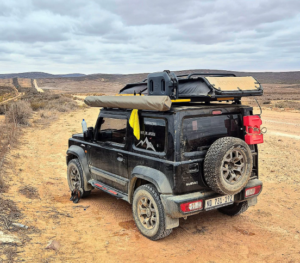Below is an extract of an anthology, which brings together writings by Aslam Fataar over 25 years. The book is titled, ‘Searching for Islamic Ethical Agency in Post-Apartheid Cape Town: An Anthology’, published Africa Sun Media Press, October 2019.
The chapters in the anthology are organised in chronological order. The first chapter is a khuṭbah that I delivered at Claremont Main Road Masjid in 1994, and the final chapter is one delivered at the mosque on 31 May, Ramaḍān, 2019. As indicated earlier, the first chapters are based on a somewhat optimistic reading of the political imperative and the need for Muslims to actively participate in the post-apartheid development of the country.
The book can thus be regarded as nation-state-centric; in other words, it proffers the nation as the basis for its cultural and religious reflections. It stands to reason that our apartheid-devastated country would require a serious national programme to rebuild its governmental infrastructure and provide houses, hospitals and schools. The activist stance that I favoured is to contribute to this project, and it is this nation-building vision that animates my activist-intellectual orientation in this book.
This optimistic national building perspective is attenuated by the end of the book. Socio-economic decline, faltering governmental infrastructure and systemic collapse were exacerbated by widespread state corruption during the last ten years. Governmental politics were ‘overdetermined’ by the politics of the belly. State capture became the dominant raison d’être, compromising governmental capacity to build a functional developmental state. The last ten wasted years spawned corrosive dynamics in the body politic. The majority of the country’s citizens foundered in a context where basic service delivery became neglected, which left them exposed to unremittingly harsh living conditions.
From around 2009 a series of chapters in the book offered a critique of governmental politics and Muslims’ adherence to an easy accommodation and support of the ruling party. It makes a plea for the Muslim leadership and civic organisations to develop a critical distance from the ruling government, at times to offer constructive critique when required, and at other times denounce and call out the government and ruling party on its corruption and anti-poor policies.
I argued that the qur’anic requirement of bearing witness to injustice, of calling out corruption and state infrastructural collapse made it necessary for Muslim civil society to develop a critical distance from government. Alignment with broader civic, social justice struggles in support of pro-poor development would be the preferred ethical path. Cosying up to the ruling party would compromise Muslims and other communities in walking such a path.
Regarding the emerging socio-cultural landscape after the first elections in 1994, the book turns its attention very early to at least two dimensions that emerged quickly and dramatically on the democratic landscape: the first is the complex socio-economic landscape and Muslims’ adaptations to this landscape, and the second is the rapid impact of global flows on local Muslims’ discursive orientations.
This book is an attempt to define and occupy the middle ground and build a conversational space that would avoid framing the community as adversarial and lacking a shared language. The book attempts to impel an inclusive dialogue and to create common ground. Generating such common ground would afford the community a space to begin to figure out how discourses enter into, and play out, in our everyday lives and regulate our behaviour.
Understanding some of these tropes will provide a basis to more adequate responses to the challenges that confront the community. Commitment to justice, openness, intra-religious tolerance, and developing complex Islamic literacies are essential. The urgency of developing spaces of engagement and deliberation is unquestionable. Walking a dialogical path to building social spaces and institutions of engagement will be tough and even appear to be counter-intuitive to some.
This book is a call for the careful and deliberative generation of dialogical spaces, especially in the myriad Muslim educational institutions that have emerged in the country since 1994, for nurturing respectful and inclusive dialogue across historically ossified boundaries. It is only through building a society on the basis of the qur’anic imperative of mutual and inclusive dialogue and engagement that Muslims in our beloved country would be able to secure our future and contribute to the future of fellow citizens.


